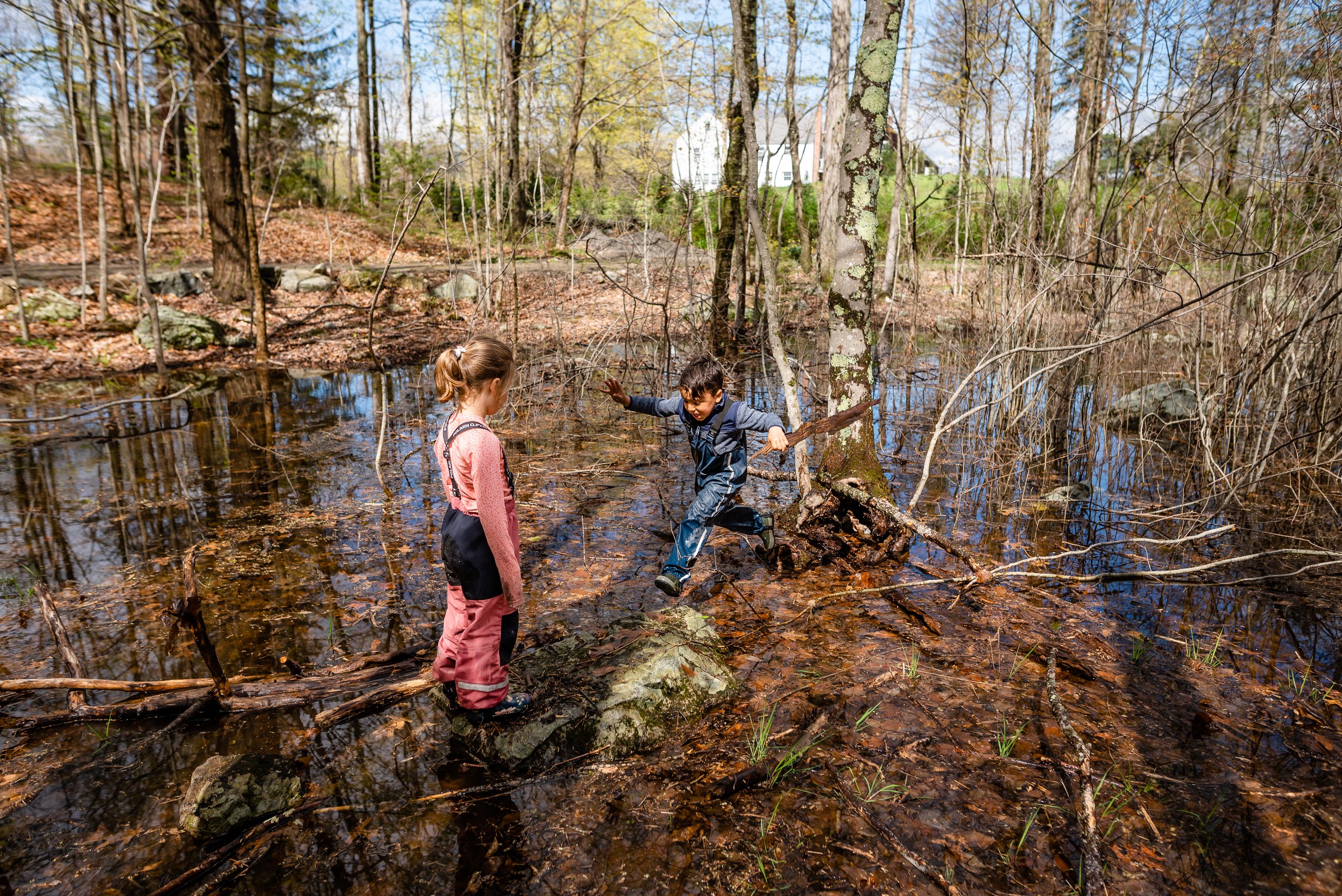
Why Choose
Nature School?
In nature, children are at home. They run, explore, create, grow curious, and play.
“
Play is the work of childhood,
Mr. Rogers said—and he was right.
Any expert in child development will tell you that play is absolutely essential to a child’s intellectual and emotional growth and development.
But since the ’90s, we’ve seen a hyper-focus on academic learning for children as young as 2 or 3. Turn PBS or Nickelodeon on for just 30 minutes and you’ll see commercials for 2 and 3-year-olds learning how to read, giving parents the idea that this is natural in the course of child development. It is not.
As parents and educators,
we must fight back.
According to Dr. Peter Gray, a former research professor of psychology at Boston College and a well-known advocate for free play for children, play is self-chosen and self-directed, motivated by means more than ends, guided by mental rules, and includes a strong element of imagination.
Too often, early childhood classrooms are filled with children listening to an adult and participating in teacher-led activities. Play, observed by teachers ready to listen and guide, can provide much richer learning experiences, especially when outdoors.

We’re up against another deficit as well—nature deficit disorder.
It is not a medical diagnosis but a term coined by Richard Louv in his book, Last Child in the Woods. In Louv’s words,
[An] expanding body of scientific evidence suggests that nature-deficit disorder contributes to a diminished use of the senses, attention difficulties, conditions of obesity, and higher rates of emotional and physical illnesses. Research also suggests that the nature-deficit weakens ecological literacy and stewardship of the natural world.
“
The average American child spends 4-7 minutes a day in outdoor, unstructured play and roughly 7 hours in front of a screen.
At a very young age, most children can recognize the logos of Nike, McDonald’s, and Target, but can’t tell you the names of the trees or flowers in their own backyard.
We have lost our relationship with nature and we must get it back.
An abundance of research since 2005 gives us plenty of reasons to choose nature school. Here’s a sampling of what nature can do for children:
Build confidence, independence, and give kids agency
Cultivate ecological literacy and a love of Mother Nature
Aid in the development of empathy
Create and foster environmental stewardship
Nurture creativity and imagination
Reduce symptoms of ADHD and improve executive functioning skills
Foster adaptability, endurance, and perseverance
Allow for intense gross motor development and adventurous play
Help children develop risk assessment skills
Decrease stress and anxiety





